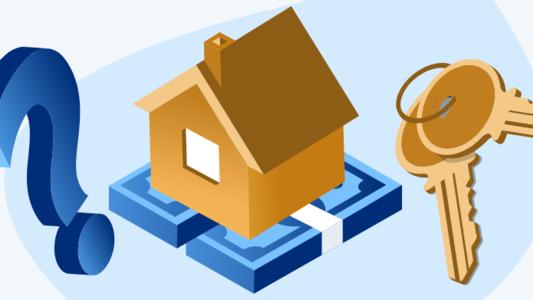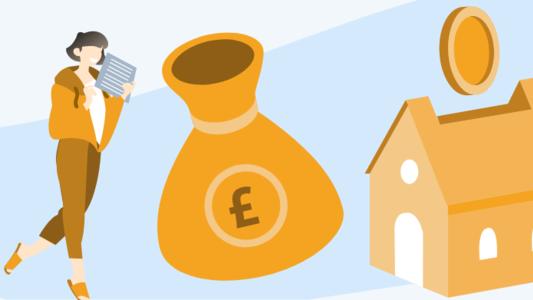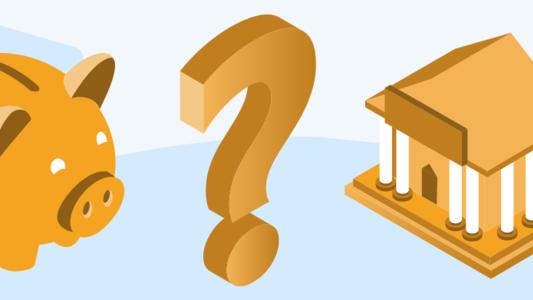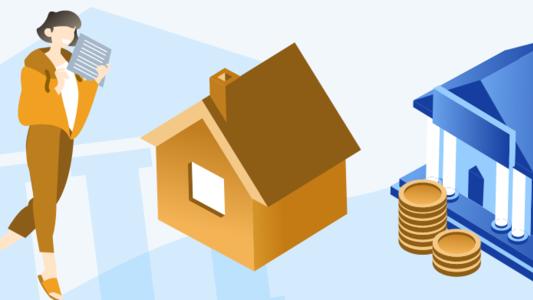UK Housing Market in 2022: How Does It Work?

With interest rates rising and people paying higher mortgage repayments, people want to know how the UK housing market is functioning in 2022. Is the housing market about to crash? What are the danger signs? In our full guide, we go through every detail of the UK housing market!

How Does the UK Housing Market Work?
The UK housing market is notorious for being expensive and difficult to understand. Especially if you’re a first-time buyer, getting used to the housing market terminology and how it works can be a tough challenge.
The housing market in the UK provides a lot of opportunities for different people and not just those buying a home. You can own your own home, rent from private landlords, or get cheaper housing from a housing association or council house.
In all of these areas, the housing market works the same as any other market, with sellers and landlords posting prices, and buyers and renters accepting to pay the amount. Since it is housing, the price you pay is usually quite flexible and long negotiations often take place.
What’s Freehold and Leasehold?
In the UK housing market, there are generally two types of property you can buy: freehold and leasehold. A freehold property is where you own both the land and the building that you live in as a whole and you take responsibility for its maintenance. Another option is buying a leasehold property, where you own the property for a limited (but often long) length of time.
Check out our Freehold vs. Leasehold guide!

Why Is the Housing Market Important?
The UK housing market is vital for providing people with affordable housing and good rent prices. However unfortunately, this isn’t always the case as higher prices and tougher conditions have priced out many first-time buyers.
However, in principle, a robust housing market that boosts home ownership brings a tremendous positive impact to an individual or family for three main reasons:
- You have the right to change or alter your home as you see fit
- You don’t have to worry about upsetting a landlord
- Your home will represent the largest amount of your wealth

How Many Own Their Own Home in the UK?
Owning your own home is a dream for many, and in the UK it is a reality for a slim majority of people. Currently, the home ownership rate in the UK stands at 65.2%, although lower than the peak of 70.9% in 2003. Also in recent years, the private renting has increased to 4.43 million households.
Most young people do not own their home and 65.2% homeownership figure is mostly made up of those who are 35 and over. Here’s a graph showing the current age and home ownership:
Source: Statista
What Are the Main Parts of the UK Housing Market?
The UK housing market is similar to other housing markets across the world, but if you’re a newcomer, it’s a good idea to get an overview of what the housing market includes. Generally speaking, the UK housing market is made up of four main parts:
All of these parts together make up the UK housing market and provide a variety of choices for people from all different financial situations.

Privately Owned Property
Most property in the UK is privately owned as either a freehold or a leasehold, and the vast majority of these tend to be freehold where both the land and the building are included with the ownership.
Owning your own property has a lot of advantages as it gives you a significant stake in the economy and represents the biggest part of your personal wealth. You’re also able to make any alterations yourself and you don’t have to answer to anyone to make any improvements.

Mortgages
Unless you’ve come into a large inheritance, it’s very unlikely that you’ll be able to afford to buy a house straight off the shelf. More likely than not, you will need to get a mortgage in order to pay for it.
A mortgage is a long-term loan that you’ll often get from a bank or another lender that will give you up to 90% of the property’s value, the rest being covered with your mortgage deposit. You pay this loan, along with interest, over a long period of time, the standard being 25 years.
Check Out Our Mortgage Calculator!
Rented Property
If you’re unable to buy a property, the standard is to rent a property from a private landlord. In this arrangement, your landlord will agree on a tenancy agreement that states the rules, the length of the tenancy, and the rent price for your stay in the property. You might also be able to appoint a guarantor to help if you can’t make your rent payments.
Private renting has been growing over the last two decades and now is becoming a more common way in which people live. Although you won’t own the property, you don’t pay any interest on your monthly rental payments and you can usually leave with just giving notice. You can check out rental websites to find a place to live easily!
Check Out Our How To Rent Guide!Social Housing
For people who are in financially difficult situations, social housing has become an option for cheap, affordable places to live with reduced rent and other assistance such as housing benefits.
These are usually either offered by housing associations or by local councils who provide council houses that are available to the most vulnerable. You can even qualify for other advantages such as right to buy to get yourself on the property ladder.

What Affects House Prices?
There are many factors that affect the price in a housing market but the most significant impact comes from supply and demand. If there are enough houses for people to buy, then the price is generally more stable than it would be otherwise.
However, many other factors that are unrelated to general market conditions that will change the way that house price behave in the housing market:
- Income
Income for individuals and households has a big impact on house prices. As people have higher income, they will be more likely to invest in second homes and holiday properties, and will also be able to afford higher mortgages. - Population
Population has also been a driver of prices due to the higher demand. If there aren’t enough houses for a larger and larger population, this will bring the price up even more. - Interest Rates
Interest rates are another factor that determine housing prices. When interest rates are lower, the costs of borrowing are also lower and mortgages become less expensive. However, as interest rates go up, and mortgages become more expensive, then there will be less demand for them and this will drive down property prices. - Social and Cultural Factors
House prices can also be affected by social or cultural trends. For example, a housing market can experience a shift from buying towards renting if it’s more fashionable. Marriage rates and birthrates can also have an impact on the price.

What Determines the Price?
House prices are generally determined by the supply of houses before any other factor. What this means is that there is a positive correlation between the supply of houses and the price. So if there are more houses being built, the prices tend to increase because more people want them.
On the other hand, there are other factors that also affect the price and restrict the supply of houses:
- Government regulation
- Costs of building
- Taxes and subsidies
These can either help or hinder house prices since less regulation and lower costs of building can help push more supply. However, taxes and more regulation can hinder it and make it more difficult for people to develop property.

Why Are Higher Prices Good?
Rising house prices is a contentious issue between homeowners and first-time buyers. While first-time buyers want house prices to fall so they can afford to buy one, homeowners - particularly those with mortgages - want to keep house prices up.
Generally speaking, high house prices are a good thing if you’re a homeowner since it means that you have a higher amount of wealth. If house prices collapse to below the value of your mortgage, you could end up with what’s called negative equity.

Will the Housing Market Crash in 2022?
There’s a lot of speculation at the moment as to whether the housing market might crash in 2022. Especially with the way things are going currently, it is looking more and more likely that housing prices will start to fall. With inflation, interest rates rising, and people feeling the cost of living, a housing market crash in 2022 is possible.
What Indicates a Housing Crisis?
Many analysts have noticed that the housing market is starting to slow down. Reported in the Guardian, Nationwide’s chief economist Robert Gardner has said:
There are tentative signs of a slowdown, with the number of mortgages approved for house purchases falling back towards pre-pandemic levels in April and surveyors reporting some softening in new buyer inquiries.
This is coming from other factors such as average housing prices had grown only 0.3% in June whereas in May they had grown 0.9%. Along with other indications such as slower growth in the economy, the possibility of housing prices falling is very real.

Will There Be a Repeat of 2008?
It is unlikely that there will be a repeat of the 2008 financial crisis that was triggered by the subprime mortgage crisis in 2007. During that crisis, banks and other lenders were lending too liberally on very risky mortgage terms, and when the rate of mortgage delinquencies went up, the whole system came crashing down.
Since the crash, mortgage lenders have been very cautious when lending, asking for higher deposits and higher interest rates. Despite mortgage delinquencies also going up this time around too, financial institutions and governments are much more prepared.
What is mortgage delinquency? Mortgage delinquency means simply that a mortgage payment has been missed. If you are missing your mortgage payments, that is counted as delinquency and can have terrible ramifications on your credit score. If your delinquency continues, your bank or lender can repossess your house in order to recover what they’re losing off you.
Do House Prices Go Down in a Housing Market Crash?
In a housing market crash, prices plummet and homeowners with mortgages are plunged into negative equity. Once the value of your property is lower than the value of your mortgage debt, then you lose a lot of confidence in the market and you start spending less. This is why negative equity is a bad situation. After the crashes in 2000 and 2008, negative equity was the result and it took a long time to recover.






